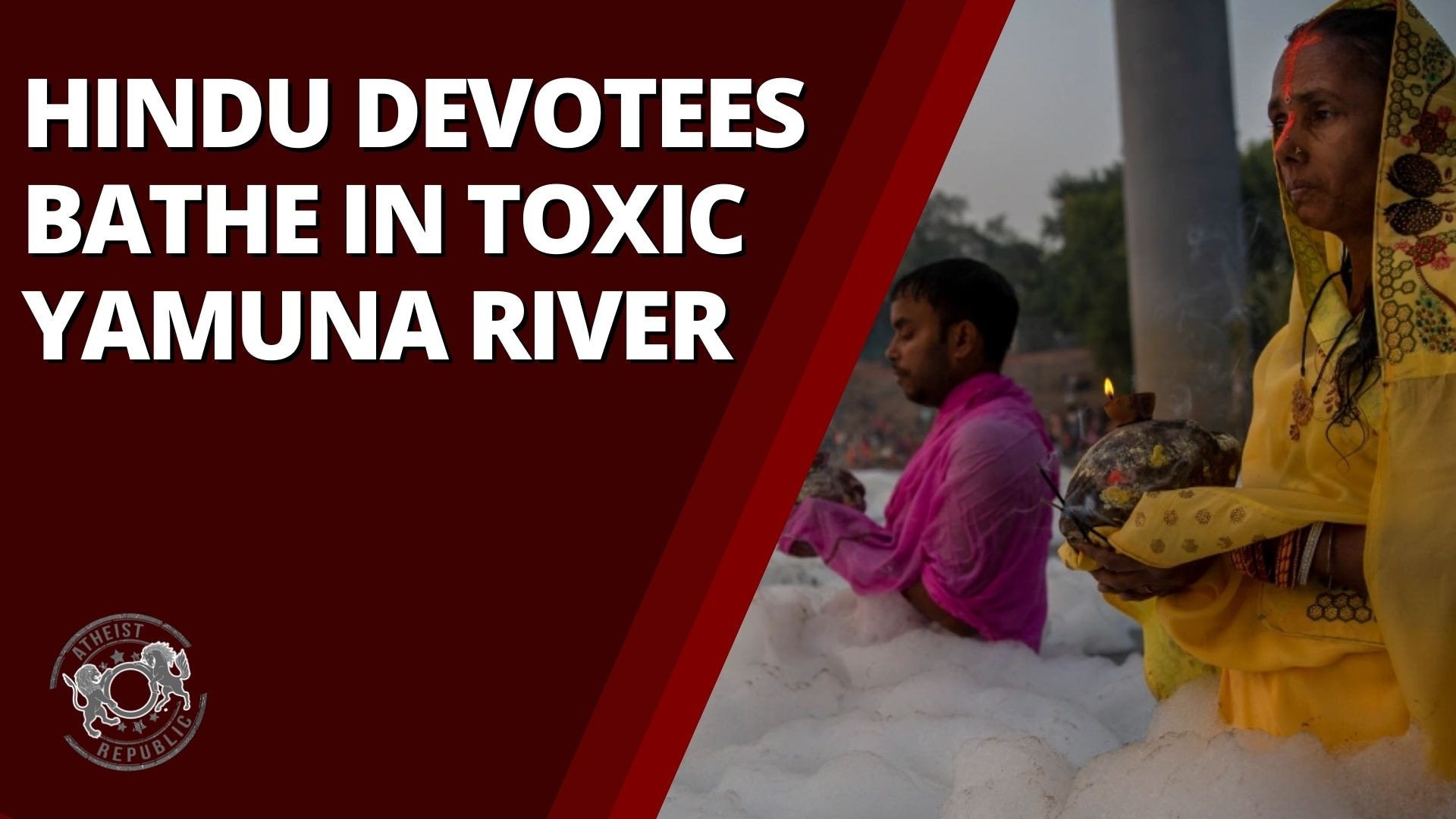
On Wednesday, November 10, Hindu devotees flocked to the banks of the Yamuna river in New Delhi to observe Chhath Puja. Despite the foaming waters caused by various forms of pollutants dumped into the river, the devotees were unfazed by the danger. People stood knee-deep, reciting prayers; others submerged themselves completely.
Rajesh Kumar Verma, one of the devotees that offered prayer in the Yamuna, was very defiant despite the health hazards. “What fear,” he asked confidently. “If we are scared, then how can we pray?” Verma added.
Chhath Puja, one of the significant Hindu festivals, is celebrated in four days. The festival is marked with a bath or a dip in the Ganges River, including its tributary rivers. The visit to Hinduism’s holiest rivers is an act of self-cleansing; the devotees also clean their households after cleaning themselves in the river.
But the Ganges and its tributaries, including the Yamuna, are one of the most polluted rivers in the world. According to the United Nations Environment Programme (UNEP), 10 to 25% of the plastic waste generated in the cities surrounding the Ganges is not recycled. Factories and other industrial plants also dump their wastes directly into the river, despite government regulations.
On Wednesday, during Chhath’s first day of celebration, New Delhi’s air quality was rated as “very poor” by the System of Air Quality and Weather Forecasting And Research (SAFAR), India’s environmental monitoring agency.
The waters of the Yamuna were covered in the bubble-like froth that persisted on its banks. Authorities tried dispersing the white foam by driving motorboats and disturbing the waters; they also erected bamboo stick barricades to prevent the foam from forming in the banks.
Already suffering from worsening air pollution conditions, India’s yearly agriculture fires exacerbate air quality conditions.
The lockdown has had little impact on the health of the rivers. A study that took pre and post-lockdown measurements on the Ganges’ and its tributaries’ health concluded that “only the Haridwar site showed improvement to the extent of being potable.”
Rajendra Mahto, another devotee offering prayers in the Yamuna, said, “Delhi is full of pollution, but still people’s lives are going on. Like that, we will also do our prayers.”
